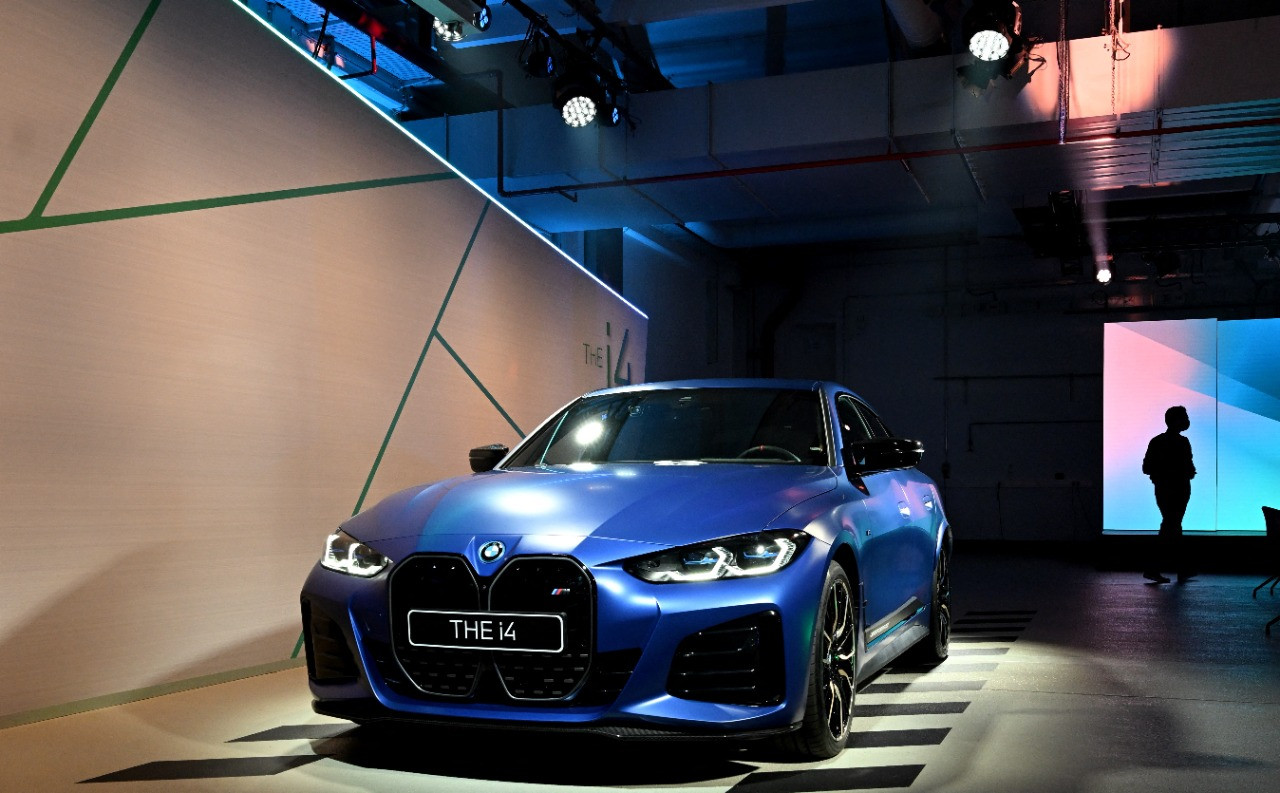Popular Reads
Top Results
Can't find what you're looking for?
View all search resultsPopular Reads
Top Results
Can't find what you're looking for?
View all search resultsFor automakers, EV surge is everything everywhere all at once
Change text size
Gift Premium Articles
to Anyone
T
he surprise leadership shuffle on Thursday at Toyota, renewed urgency at Renault and Nissan to restructure their alliance and Elon Musk's declaration that Tesla will be the world's number-one automaker by a wide margin have one thing in common: What once defined the global auto industry's center is no longer holding.
The announcement that Akio Toyoda will step down as chief executive of the world's top-selling automaker on April 1 came just hours after Musk used a quarterly earnings call to declare that Tesla was now the auto industry's leader in profitability and manufacturing efficiency, the crown Toyota held for three decades.
Toyota's incoming CEO, Koji Sato, faces a daunting task. He must accelerate the Japanese automaker's efforts to develop more competitive electric vehicles (EVs). But he will get little breathing room from Tesla or the Chinese EV manufacturers who are using their leads in EV technology and production costs to slash prices.
Tesla already earns roughly seven times as much per vehicle as Toyota. Its 17 percent pre-tax margins are roughly double the average for the rest of the industry. And after a rough 2022 for the company's shares, the stock has gained 28 percent to open up 2023.
Musk hinted again on Wednesday that Tesla is working on a new vehicle that could sell profitably for under US$30,000, which would compete head-on with mass market models from Toyota, Volkswagen, Ford Motor and General Motors.
Musk has in the past teased products that took far longer to deliver than he initially promised, such as the long-delayed Cybertruck.
But the Tesla chief's ambitions are clear: To reorder the auto industry hierarchy that for decades had Toyota at the top.
"I don't think you could see a second place with a telescope, at least we can't," Musk said when asked how the auto industry could look in five years.
The shifting ground
Global automakers are experienced with periods of feast and famine that come on roughly seven-to-10 year cycles. What is happening now is different.
The shocks of the pandemic, two years of supply-chain chaos and possibly a recession this year are colliding with a once-in-a-century shift of the industry's fundamental technology.
As combustion vehicles give way to EVs with high-powered computer chips for brains, many of the advantages of incumbency that Toyota enjoyed are withering away.
The shift to electric, computerized and software-driven vehicles has opened the door for Tesla and other start-ups, particularly in China, to re-set the ground rules for competition. Tesla's price war could be just the start.
The Wall Street Journal reported that global sales of fully EVs were around 7.8 million units in 2022, an increase of about 68 percent from the previous year, according to preliminary research from LMC Automotive and EV-Volumes.com, research groups that track automotive sales.
The research groups also reported that, for the full year, fully EVs accounted for 11 percent of total car sales in Europe and 19 percent in China, according to LMC Automotive. Combined with plug-in hybrid vehicles, which can be plugged in to recharge the battery but also have a small combustion engine, the share of EVs sold in Europe rose to 20.3 percent of the total last year, according to EV-Volumes.com.
The US is behind China and Europe in the rollout of EVs, but last year car companies in the country sold 807,180 fully EVs, a rise in the share of all-electric vehicles to 5.8 percent of all vehicles sold from 3.2 percent the year before. Tesla is still the world’s dominant EV maker, but conventional auto makers are shortening its lead with new electric-model launches.
Incumbent automakers can no longer count on refinement of mature vehicle technology to stay competitive. Established automakers are investing heavily in EVs, some faster and with more success than others.
South Korea's Hyundai on Thursday reported better-than-expected results powered in part by strong sales of its new EV line-up. Hyundai forecast its EV sales would grow by 54 percent this year, a faster growth pace than Tesla has forecast.
Chinese manufacturers pouring EVs into Europe have as much as a 10,000 euro ($10,600) cost advantage, Patrick Koller, chief executive of auto supplier Forvia, said earlier this month.
The intensifying competition puts pressure on Renault and Nissan to resolve negotiations to restructure their alliance. The companies are now aiming to announce a deal, including an investment by Nissan in Renault's EV unit, by Feb. 6, sources told Reuters.
Renault and Nissan once argued that their alliance gave them significant advantages in economies of scale. That potential still exists. But first they will have to fight to stay at their current size as Tesla and Chinese manufacturers try to strip away their sales.
"Even though the market is shrinking, we're growing and EVs have doubled almost year-over-year," Tesla vice president Lars Moravy told analysts on Wednesday. "We always look at it as how much of the total vehicle space do we have, and we're just going to keep growing in that space. There's 95 percent for us to go get."










